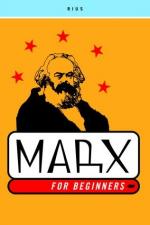
|
| Name: _________________________ | Period: ___________________ |
This test consists of 15 multiple choice questions and 5 short answer questions.
Multiple Choice Questions
1. After the Greek epoch, the so-called Age of Faith occurred during what period?
(a) The Middle Ages.
(b) The Italian Renaissance.
(c) The Ottoman Empire.
(d) The Roman Empire.
2. The term from number 116 comes from Greek where it means what?
(a) Machinery.
(b) Evil.
(c) Placed beyond physics.
(d) Led by females.
3. The price of a commodity or product is created through what?
(a) War.
(b) Natural disasters.
(c) Competition.
(d) A recession.
4. Seeing the world as mechanical is also known as what?
(a) Matriarchal.
(b) Mechanism.
(c) Metaphysical.
(d) Maniachal.
5. Marx's theories were leading him away from what?
(a) His original beliefs.
(b) Practical philosophy.
(c) Pure philosophy.
(d) His predecessors.
6. From what does this type of value come?
(a) Putting something else of value into the commodity.
(b) Putting knowledgeable people of value into the commodity.
(c) Putting someone else of value into the commodity.
(d) Taking something else of value out of the commodity.
7. According to Hegel, if the worker obeyed the state, what would happen?
(a) He would one day join the elite class.
(b) He would earn more money.
(c) He would find spiritual happiness.
(d) He would be protected.
8. Who was Xenophanes?
(a) An early teacher.
(b) An inventor.
(c) One of the first philosophers of recorded history.
(d) One of the first muscians of recorded history.
9. Absolute liberty was reached through what, according to Hegel?
(a) The Industrial Revolution and the Russian state.
(b) The French Revolution and the Prussian state.
(c) The Marxist Revolution and the German state.
(d) The Technological Revolution and the French state.
10. Why does Rius begin by looking at this point in human history?
(a) Early man made many discoveries.
(b) The Book of Genesis explains the beginning of mankind.
(c) Neanderthals are closely related to homo sapiens.
(d) Some men convinced people they had communication with the divine.
11. What can make a difference in the workers' situation?
(a) Better pay.
(b) Shorter work hours.
(c) Unions.
(d) Insurance.
12. Vico suggested that the history of man passes through how many different stages?
(a) Five.
(b) Four.
(c) Three.
(d) Six.
13. Why are workers exploited in a capitalist state?
(a) They are worthless.
(b) They do not earn the full value of their labor.
(c) They are uneducated.
(d) They are not intelligent.
14. Why is a worker's labor power a commodity in a capitalist state?
(a) The capitalist sells the labor power.
(b) The capitalist is the power.
(c) The capitalist gives the laborer the power.
(d) The capitalist buys the labor power.
15. Greece produced three of the most well-known and important philosophers. Who were these philosophers?
(a) Aristotle,Parfit, and Plato.
(b) Plato, Democritus, and Aristotle.
(c) Democritus, Vassallo, and Jesús Mosterín.
(d) Plato, Bouwsma, and Zenon Pylyshyn.
Short Answer Questions
1. What increases alienation?
2. What is the second stage, according to Vico?
3. What seeks scientific proof for what it examines, including religion?
4. Rius examines the roots of Marxism. At what does he begin by looking?
5. Marx argued in ________________________ that the more a worker produced, the less he could consume, and the more value a man creates, the less he has.
|
This section contains 504 words (approx. 2 pages at 300 words per page) |

|




